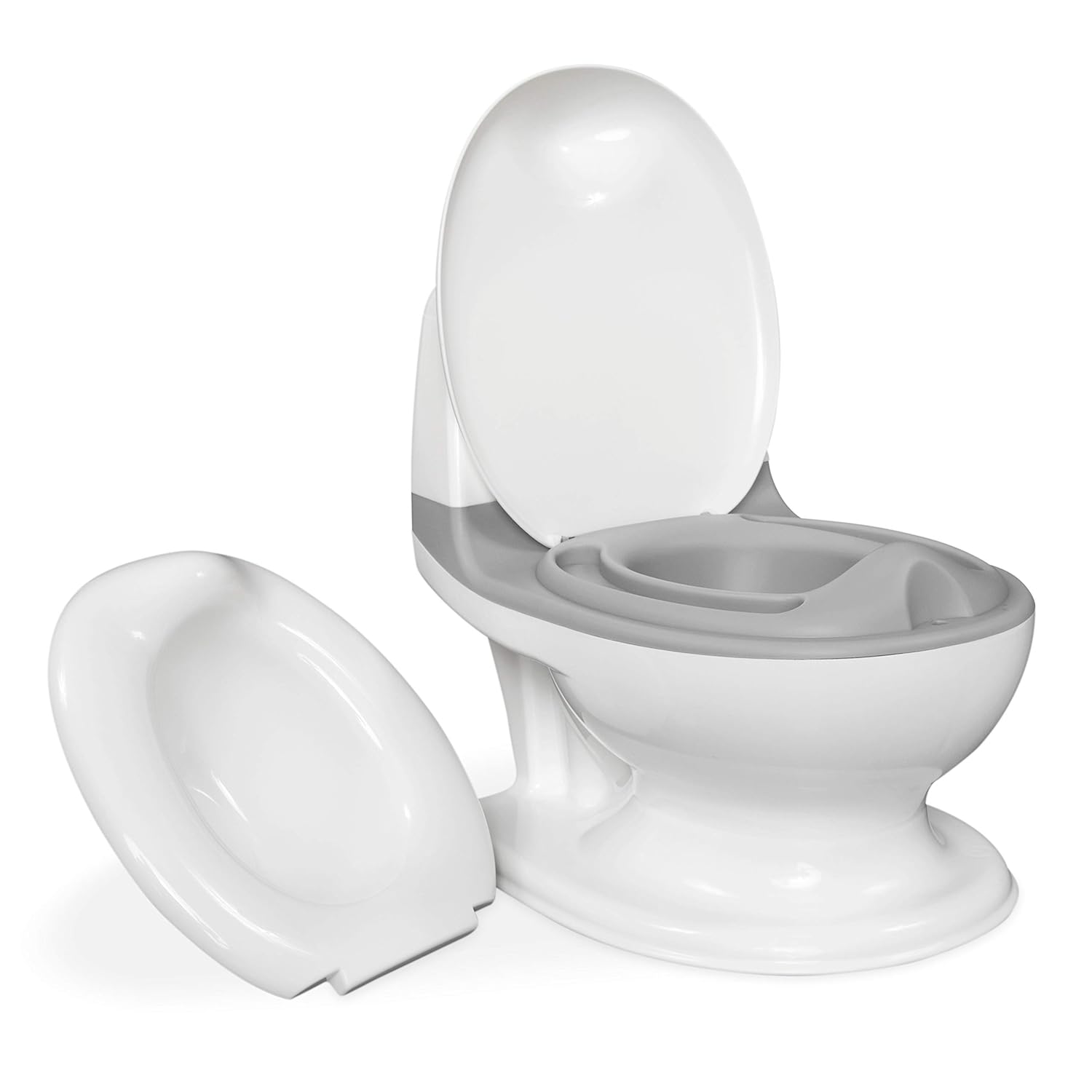Sleepless nights, breastfeeding issues, fussy eating and temper tantrums are all part of parenting little ones. But it wasn’t until potty training that I was reminded that things are not about to get easier anytime soon. I had always thought that if I hadn’t been a pharmacist, I may have been an elementary school teacher; but since realizing how difficult it is to teach little children tasks like pooping and peeing into a toilet, it is clear to me that I could never be a teacher.
My first-born was relatively easy when it came to potty training. We still had a lot of accidents, and it took time, but it only took one stretch of training attempts.
With my second born, I have honestly felt like potty training will be the end of me. We tried once for a few days, but it was met with tears and withholding. We tried again a few MONTHS later, but then we had numerous accidents and missed connections with the toilet. We are going through our third attempt a few more months later, this time (thank goodness!) with much more success. It’s going well so far, fingers crossed.
Here’s my take on what worked, and some advice to follow. I am no expert, but I still have my sanity after potty training so I hope that counts for something.
To pee or not to pee
Many children can start showing signs of being ready for potty training at around 2 years of age. However, there are kids that are not ready until they are 3 years old. It’s best not to rush or pressure your children, because it will most likely just stress out all parties involved, and may just take longer to potty train. Watching for signs that your little poop-machine may be ready can help get things started.
Signs of readiness can include:
- Hiding to pee/poop - Your child is aware that doing his/her business is a private act
- Tugging at the diaper – They are visibly uncomfortable in a soiled diaper, and may prefer using the toilet
- Having longer periods of dry diapers or waking from a nap with a dry diaper – This implies that they are gaining more bladder control
- Expressing interest in the potty or how others use the toilet – demonstrates willingness to try/learn
- Telling you that they are going to, or have just, peed/pooed in the diaper – awareness is important so that they can know when to ask to use to the toilet
That being said, a lot of kids don’t show these signs at all; some show the signs, but (ahem, like my son) are still completely unwilling to try potty training. If you DO see the signs, however, there’s no harm in trying. If your child is not ready, wait a while and try again. Make sure your next attempt is a while away and use a different approach. Kids are smarter than we realize; they don’t forget how much they hate the toilet within one day. You may need to give it a few weeks to months. We spaced out our attempts by months.
Having a potty mouth
Talk to your kids about potty training. There are so many books about potty training that can help children realize that using the toilet is a normal part of their development. There are even YouTube videos with catchy songs and tunes! Books and songs can also be helpful while actually sitting on the toilet to motivate them. Explain what will happen so that there are no surprises. Discern what their fears and concerns are: ie. They will not fall in the toilet. The toilet will not swallow them. It won’t hurt them.
Everybody uses the toilet, and if they have an older sibling use them as an example. Remember each kid is unique in how they will respond to your conversations. Some children will be willing, as was my older son, while others may be much more hesitant. To my chagrin, my younger son was more nervous to try. However, using books and videos really helped us this time around.
Here are some books available to help open up the conversation:
For songs and video, literally just go to YouTube, and you will find a plethora of content!
Show them where the magic happens
Potties come in all sorts of colours, sizes and shapes. Animal shaped ones are common too. Some have sounds and even lights! … I’m just kidding about the lights, but that would be cool. These features are meant to make the whole process less intimidating for children. Here are a few of the options out there:
My kids, however, didn’t like the miniature potties and found those scarier than the actual toilet itself. So we have used potty training seats to help make their thrones more comfortable. These are also available in a variety of designs and patterns such as these.
Whatever vessel you choose, make sure your child is aware of what they will be using, so that there are no surprises.
Don’t poo-poo all over the parade
Most importantly, we, the parents, need to make sure we are ready for this challenge.
Realistic expectations need to be set, and putting deadlines and pressures on yourself and your child is just asking for trouble. Trust me, I know. Every child is different, so do not compare your child’s development to his/her peers (potty training or any other milestone for that matter).
Remember that if the child is not successful, it is not indicative of your ability as a parent, AND it is not your child’s fault either. There is no room for #momfail moments here; because the minute you start blaming yourself or your child, your attitude will be met with stubbornness. If you have a lot going on, like a new job, big project at work or other life changes, I wouldn’t advise picking that time to potty train your kid. Remain calm and patient. I realize that this is incredibly difficult to do, but we all can only do our best.
Be prepared to encourage and shout hoorays for the tiniest little victories. Isn’t that what parenting is really about anyways?
Just remember, this too shall pass; your child will not be in college wearing diapers.
Look out for Part II, where I will discuss some different techniques and approaches!
–
** Please note: All product links in this article are affiliate links, and using them to purchase will help the blog. I appreciate all your support! **















